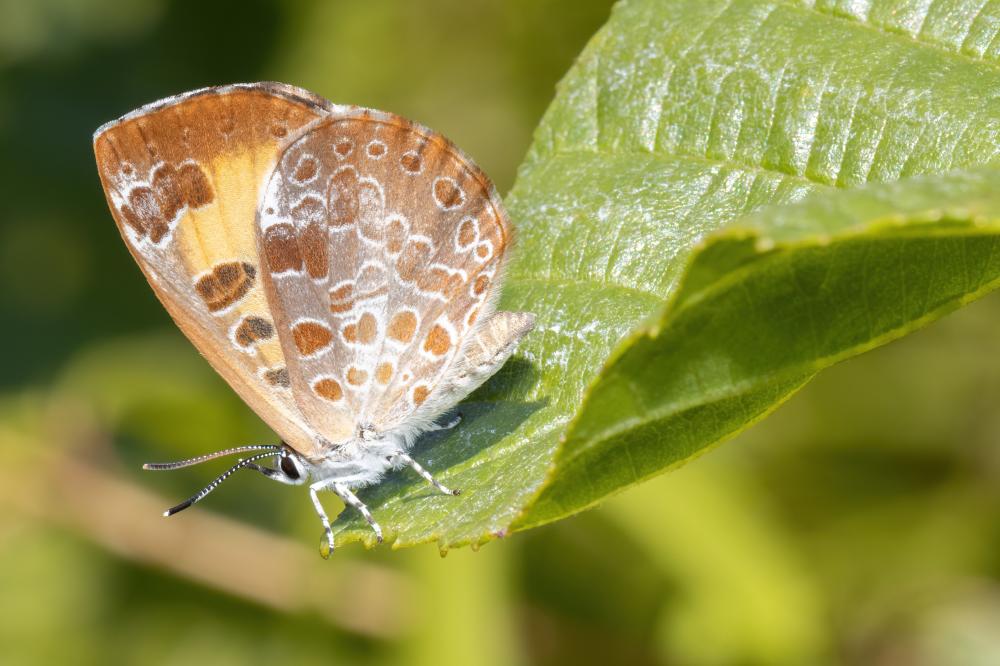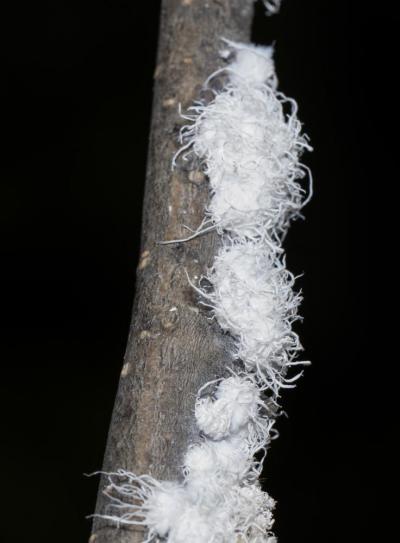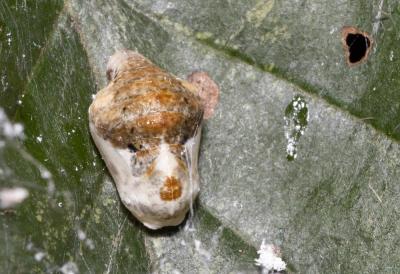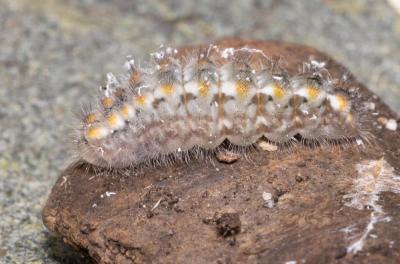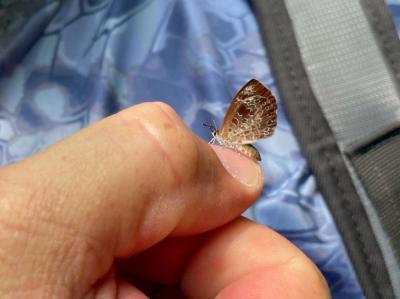Carnivorous butterflies? Really?
It’s true. Harvester butterflies are carnivorous.
The only species of butterfly in North America which is strictly a carnivore can be found right here in Massachusetts. They won’t be found in your favorite wildflower field though. These butterflies spend their entire lifespan around their favorite food source, the wooly alder aphid. So, where do we find wooly alder aphids? They are found only on alder trees. If there are no alder trees then there are no wooly aphids, and thus no harvester butterflies. It’s that simple. Luckily there are several known locations throughout the state where these butterflies have very healthy populations.
But enough about the trees. Does the butterfly just munch away on aphids all day? Not exactly. It’s a bit more complex than that.
When a harvester butterfly lays it’s eggs, it chooses a location where there are woolly alder aphids present. While most caterpillars eat host plants during their development, the harvester caterpillars emerge from the eggs within a few days and begin to eat the host aphids in order to grow up and pupate. There is a fascinating symbiotic relationship that the caterpillars have with ants during this stage of their lives as well, but that is a bit deeper than this post’s intended information. Google it and prepare to be amazed.
Anyways, the caterpillars eat the aphids, and grow bigger until it is time for them to transform into their chrysalis in preparation to become the adult butterfly.
The adult butterfly is tiny with a wingspan of approximately 1 and 1/2 inches. Unlike most butterflies, they are not equipped with a long enough proboscis to feed on the nectar from flowers. Instead, the harvester goes right back to the food source of it’s youth, the wooly aphid. The aphids secrete a honeydew-like substance that the adults are able to feed on.
So, the adult needs live aphids for their food source and the caterpillars eat the aphids for their food source. As you can imagine, keeping a healthy population of these butterflies requires a lot of aphids!
Have you seen any of these butterflies or aphids here on the south coast? If so, we would love to hear from you! email andrewphoto@comcast.net
Learn more about these marvelous butterflies and check out our list of free field trips where you may see some of these harvester butterflies at our website here: Massachusetts Butterfly Club



